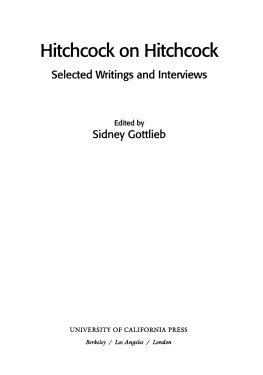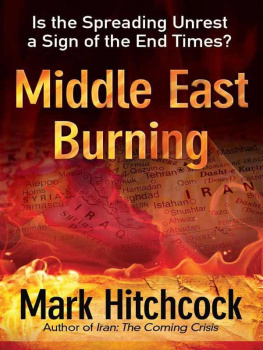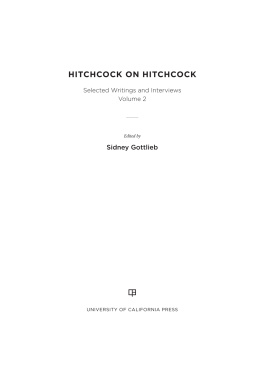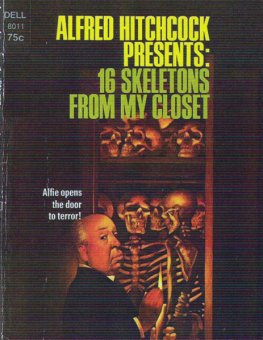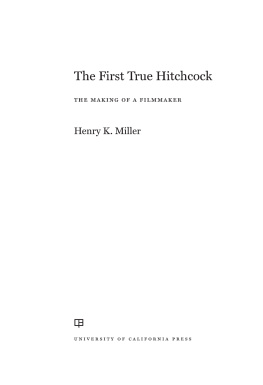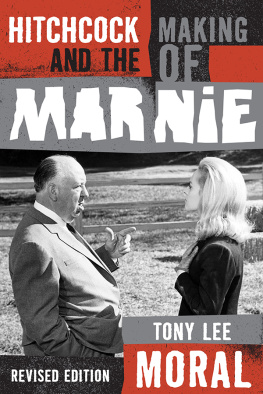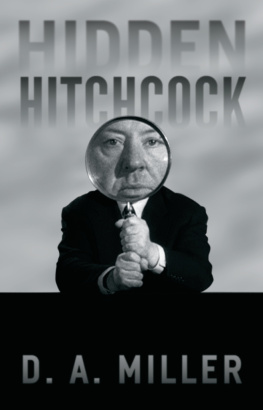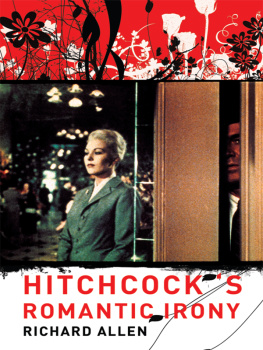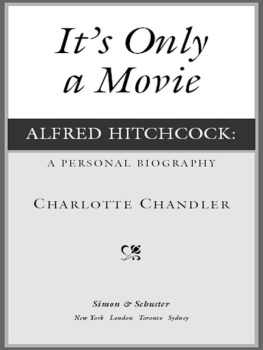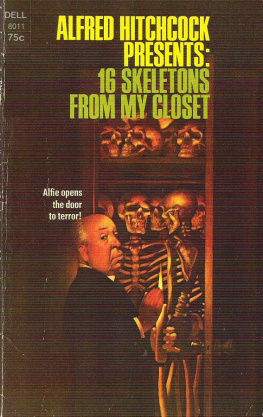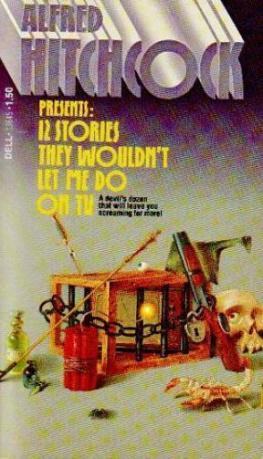Hitchcock - Hitchcock on Hitchcock, Volume 1
Here you can read online Hitchcock - Hitchcock on Hitchcock, Volume 1 full text of the book (entire story) in english for free. Download pdf and epub, get meaning, cover and reviews about this ebook. year: 2014, publisher: University of California Press, genre: Non-fiction. Description of the work, (preface) as well as reviews are available. Best literature library LitArk.com created for fans of good reading and offers a wide selection of genres:
Romance novel
Science fiction
Adventure
Detective
Science
History
Home and family
Prose
Art
Politics
Computer
Non-fiction
Religion
Business
Children
Humor
Choose a favorite category and find really read worthwhile books. Enjoy immersion in the world of imagination, feel the emotions of the characters or learn something new for yourself, make an fascinating discovery.
Hitchcock on Hitchcock, Volume 1: summary, description and annotation
We offer to read an annotation, description, summary or preface (depends on what the author of the book "Hitchcock on Hitchcock, Volume 1" wrote himself). If you haven't found the necessary information about the book — write in the comments, we will try to find it.
Hitchcock on Hitchcock, Volume 1 — read online for free the complete book (whole text) full work
Below is the text of the book, divided by pages. System saving the place of the last page read, allows you to conveniently read the book "Hitchcock on Hitchcock, Volume 1" online for free, without having to search again every time where you left off. Put a bookmark, and you can go to the page where you finished reading at any time.
Font size:
Interval:
Bookmark:

UNIVERSITY OF CALIFORNIA PRESS
Berkeley / Los Angeles / London
Photographs courtesy of Jerry Ohlingers Movie Material Store.
University of California Press
Berkeley and Los Angeles, California
University of California Press
London, England
Copyright 1995 by Sidney Gottlieb
First Paperback Printing 1997
I. Gotdieb, Sidney. II. Title.
PN1994.H53 1995
| 791.430233092dc20 | 9431624 CIP |
What began as a simple attempt to follow up on a few referencesto writings by Alfred Hitchcock very quickly turned into a muchmore complicated, time-consuming, but endlessly fascinatingproject that I could not have completed without a great deal of help.Early support is always particularly important, and I have beenextremely fortunate in this regard. Patricia Hitchcock OConnell wasgracious and encouraging from the very beginning and literallymade this volume possible by granting her permission to reprintthe material herein. And, at the University of California Press, EdDimendbergs immediately enthusiastic response to my first querywas followed by several years of invaluable critical advice, patience,and continuing enthusiasm.
Much of my research was conducted at the New York PublicLibrary, the Film Study Center of the Museum of Modern Art, theBritish Film Institute, the Margaret Herrick Library at theAcademy of Motion Picture Arts and Sciences, and the Warner Brothersarchive at the Library of Performing Arts at the University ofSouthern California (USC). I am grateful to the librarians and researchassociates at those institutions for their help, particularly inexamining out-of-the-way magazines, newspapers, and clippings files. Iam also grateful to Susan and Jonathan Post, who made my variousCalifornia research trips pleasurable and productive by giving menot only much warm support and encouragement but also a roomof my own (with a view and a pool).
Jane Sloan answered many questions and sent me printouts fromher exhaustive Hitchcock bibliography before it was published,and this steered me to articles I undoubtedly would haveotherwise missed. Sam Gill helped me find my way through the massiveHitchcock Collection at the Herrick Library. Ned Comstock at theLibrary of Performing Arts at USC uncovered articles byHitchcock that I had never heard of even as he was bringing me materialfrom the USC collection that is unavailable elsewhere. CharlesSilver at the Museum of Modern Art pulled folder after folder ofclippings files, which enabled me to find several one-of-a-kind items.Ronald Magliozzi, also at MOMA, did some last-minute checkingfor me at a moments notice. Fiona Bolt and Phil Wickham at theBritish Film Institute answered numerous queries and sent meessential material. David Henry sent me a copy of an article byHitchcock that I had never seen. Deborah Dutko gave much valuableadvice about design and illustrations.
Various people at Sacred Heart University assisted in criticalways. Judith Davis Miller, Kristen Wenzel, and Thomas J. Trebonarranged for much-needed release time and a convenientteaching schedule, which helped make my ideal of balancing researchand teaching a reality. Claire Marrone translated an article from theFrench specifically for this volume. I have received much of myeducation in film while at Sacred Heart, where Rebecca Abbott,Louise Spence, and Chris Sharrett (no longer my co-worker butalways my friend and co-conspirator) have taught a great deal aboutfilm history and theory not only to several generations of studentsbut also to at least one very grateful colleague.
I am a scholar by profession but a film lover by inclination, andmy later education in film would not have taken hold unless I hadbeen prepared much earlierby many days and nights working atthe Strand Theater with Paul, Ziggy, and Jim and many afternoonsat the Whitney Theater with my brother Lou. And now that a VCRhas replaced those theaters and the film projector my father gaveme, Suzanne Golub helps, more than she knows, in part byreading proofs and watching me watch Hitchcock movies.
S. G.
Somerset and Hamden
The Hitchcock Estate has very kindly granted their permission toreprint all the pieces in this volume. Original publicationinformation appears at the bottom of the title page for each article.Additional permissions are as follows:
Surviving is reprinted with permission from Sight and Sound(Summer 1977). Copyright 1977.
Master of Suspense: Being a Self-Analysis, Core of theMovieThe Chase, MurderWith English on It and Search for theSun are Copyright 1937/50/57 by The New York TimesCompany. Reprinted by permission.
Would You Like to Know Your Future? is reprinted withpermission from Guideposts Magazine. Copyright 1959 by GuidepostsAssociates, Inc., Carmel, New York 10512.
A Redbook Dialogue: Alfred Hitchcock and Dr. Fredric Werthamis reprinted by permission from Redbook. Copyright 1963 TheHearst Corporation. All rights reserved.
Production Methods Compared is reprinted by permission fromthe American Cinematographer. Copyright 1949 by theAmerican Society of Cinematographers. All rights reserved.
Film Production is reprinted with permission from MotionPictures in Encyclopaedia Britannica, 14th edition. Copyright 1965by Encyclopaedia Britannica, Inc.
Direction, originally titled My Own Methods, is reprintedwith permission from Sight and Sound (Summer 1937). Copyright 1937.
Lecture at Columbia University is reprinted by permission ofThe Museum of Modern Art. All rights reserved.
Hitchcock Talks About Lights, Cameras, Action is reprinted bypermission from the American Cinematographer. Copyright 1967by the American Society of Cinematographers. All rights reserved.
Alfred Hitchcock was an unusually prolific filmmaker and instantlyrecognizable personality whose popularity and influence show nosign of waning. There is one area of his activity, though, that isneglected, underappreciated, even largely unknown: his writings.Throughout his life Hitchcock was glib, witty, and, if we qualifythe term in certain ways, highly literate. He repeatedly emphasizedthe need for cinema to rely on pictures rather than dialogue, andhis most well-known manner of self-representation was via animage, as in his trademark (and nonspeaking) cameo appearances inhis films and in the cartoon caricature that aptly identified him. Butat other times he was also resolutely verbal and exploited andenjoyed the written and spoken word.
This premise serves Spotos purposes, allowing himto read Hitchcocks life in his films and argue confidently thatthere was indeed much in his life that Hitchcock would want to beinarticulate about: guilt-ridden fantasies, passive-aggressive socialhabits, forbidden and not always restrained desires, amanipulative if not tyrannical personal as well as directorial style, and so on.Whether or not this is an accurate, fair, and comprehensive pictureof Hitchcock is still being debated, but, ironically, Spotos detailedand formidably documented biography underscores not so muchHitchcocks deep inarticulateness as his constant attempts toshow and shape himselfand by no means only in his films.
Font size:
Interval:
Bookmark:
Similar books «Hitchcock on Hitchcock, Volume 1»
Look at similar books to Hitchcock on Hitchcock, Volume 1. We have selected literature similar in name and meaning in the hope of providing readers with more options to find new, interesting, not yet read works.
Discussion, reviews of the book Hitchcock on Hitchcock, Volume 1 and just readers' own opinions. Leave your comments, write what you think about the work, its meaning or the main characters. Specify what exactly you liked and what you didn't like, and why you think so.

